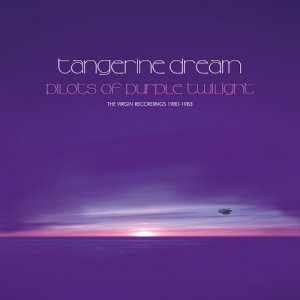 After 2019’s monumental In Search Of Hades boxed set covering Tangerine Dream’s ’70s output, it’s fantastic that Virgin decided to finish the story by releasing the bands ’80s records on the label.
After 2019’s monumental In Search Of Hades boxed set covering Tangerine Dream’s ’70s output, it’s fantastic that Virgin decided to finish the story by releasing the bands ’80s records on the label.
This period is sometimes seen as a regroup and reform period for the band. During the 1970s, their popularity had grown so much that they could put on large stage shows using lasers (actually the company Laserium) and the classic lineup of Christopher Franke, Edgar Froese and Peter Baumann had invented Berlin school music (as it later became known) with wonderful boundary-bursting releases in the middle of the decade.
But by 1979, Baumann had left and Franke and Froese were trying out different ideas within the setup and streamlining some of Tangerine Dream’s more opulent and avant-garde sounds. As they entered 1980, they recruited Johannes Schmoelling and began to pare down the lavish live shows and onstage equipment a bit; gone were the three Mellotrons used live as a whole different arsenal of synthesizers come into play and Tangerine Dream headed off into the future.Anyone who bought the In Search Of Hades set will know what to expect with this one. For starters, the artwork is beautiful, visually summing up the sound of Tangerine Dream during this era. There is a stunning 68-page hardback book with lots of fantastic photos and memorabilia from the time, with a chapter by chapter breakdown of each of the releases; this looks gorgeous and really does the band justice in the amount of effort put in. The set this time is made up of ten CDs, with some previously unreleased music, though there are no Steven Wilson remixes as part of the package as there was with In Search Of Hades. There really seems to be a great deal of care given to the overall packaging and the whole thing is stunning.
The new remasters of the previously released albums add a clarity and sonic depth to the recordings, making them sound crystal clear. I compared some to my old vinyl editions and found that they were closer in sound to them in some parts, and less digital compared to previous CD releases; there is a certain organic analogue feel to some of them, with Exit in particular sounding good.
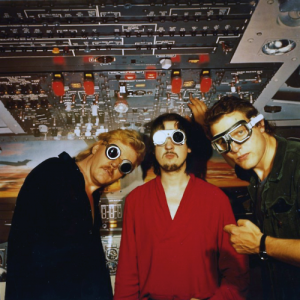 The jewel in the crown of this era of Tangerine Dream is September 1981’s Exit, where the band finally found their mojo again, and Schmoelling helped bring in a slightly more straight ahead melodic influence over six short tracks that just have that wonderful early ’80s feel to them. I used to think of this album as an alternative Blade Runner soundtrack as the music has an oddly analogue cyberpunk sound going on. Tracks like the opening “Kiew Mission” and “Choronzon” seem almost composed for a sci-fi film that never existed. In recent years, the title track was used in series one of the TV show Stranger Things, showing the influence this album had on more recent synthwave stars.
The jewel in the crown of this era of Tangerine Dream is September 1981’s Exit, where the band finally found their mojo again, and Schmoelling helped bring in a slightly more straight ahead melodic influence over six short tracks that just have that wonderful early ’80s feel to them. I used to think of this album as an alternative Blade Runner soundtrack as the music has an oddly analogue cyberpunk sound going on. Tracks like the opening “Kiew Mission” and “Choronzon” seem almost composed for a sci-fi film that never existed. In recent years, the title track was used in series one of the TV show Stranger Things, showing the influence this album had on more recent synthwave stars.
The sound is very much in keeping with the Exit phase of the band; a couple of the tracks are shorter re-recorded pieces from White Eagle, but it is bolstered by newly recorded pieces that the band had been using in their set at this point. The music here does have a slight Asian feel to it at times within its melodies; it’s also the sound of Tangerine Dream moving further away from the lushness of the sonics of the seventies, as space is more present in the compositions. Also added here is the 1983 German-only single “Daydream” and its b-side “Moorland”, which captures the sound that every synthwave band has been trying to emulate for the last five years, with rolling sequencer patterns over basic rhythm parts and swirling melodic synth lines that are hauntingly catchy and will have you humming all day.
The next CD is the unreleased 1982 soundtrack to The Soldier and one of the reasons that many Tang fans will be snapping up this set. Sixteen tracks of haunting synth pads and at times martial rhythms point towards why the band were the go-to artists from 1984 onwards for so many movie soundtracks. The music at point hangs in the air like buzzing fireflies; but having never seen the film, it’s hard to imagine how the music works with the images as it stands alone so well. Some of the pieces would be recycled into the band’s live performances at the time, and a few of the sounds even hark back — or rather give a nodding wink — to Phaedra, the band’s first album for Virgin.
It’s odd to think back to this show and my feelings of euphoria for seeing the band live (I also saw them a few nights earlier at the Croydon Fairfield Halls). The music almost drifts soporifically into its different sections as it paints on a planet-sizes canvass and on a cosmic scale, and suddenly I am seventeen all over again. The Logos album that was released in December 1982 would be made up of sections of this concert mixed with other music recorded previously before the tour. This is something that Tangerine Dream had utilised on their previous two live albums, Ricochet and Encore, and I think only about fourteen minutes of the concert was used on the final album, along with audience noise and ambience. After hearing the original show I attended in all its glory, it’s difficult now to hear the messed-around with Logos, an album that I thought for many years was what I heard that night — but it’s still a worthy live album in the bands catalogue.
Hyperborea is the final Virgin studio album by the band, released in 1983. Oddly, it has the band hinting at their early ’70s psychedelic sound in places and certainly shows them almost drawing a curtain over their ten years with the label that they were most successful on. Its title track sounds a little sad and sedate; I’ve always thought there was an air of melancholy to this album as tracks hover just on the edge of space. The titles like “Sphinx Lightning” and the title track have a sword and sorcery fantasy element to them (someone once told me they used this album as the soundtrack to their Dungeons & Dragons campaigns), and “Cinnamon Road” became one of the big numbers for the band live from this album and is Tangerine Dream at its almost pop best.
The final disc of the set has been the holy grail among Tangerine Dream fans for many years, only being available in various bootleg forms, the soundtrack to Michael Mann’s 1983 film The Keep. Here we finally get the full fifty minutes of music recoded for the movie, and having not seen the film since the last time I viewed it in the early 1990s, it’s difficult to remember how the music sits in the final film, although the album does stand alone well. What we do get here is the Dream at their most cinematic, using a mixture of classical ecclesiastical-sounding pieces (in fact, “Arx Allemand” could have been lifted from a mid-seventies Rick Wakeman solo album) with added dark electronica and almost progressive rock overtones at times. It probably showcases Schmoelling’s classical training best on some tracks, but the album does smoulder and brood quite nicely at times as well.
Some pieces sound fairly minimal, like “The Silver Seal”, which sounds like it is played live using only one synth each. “Ancient Powerplant” has an almost Vangelis vibe to it at points, whereas “Challenger’s Arrival” has a steady drum sound from Franke and Froese’s return to guitar work; this could almost be the sound that the band Zombi took on board at times. After this, Tangerine Dream would spend a substantial period of the ’80s doing soundtrack work for the likes of Ridley Scott’s 1985 film Legend and Kathryn Bigelow’s Near Dark in 1985.
Like any of these boxed sets, the real thing fans want is the unreleased or hard to find material, and both the Dominion concert plus the two soundtracks (OK, for collectors The Keep is the big one) are worth the admission price alone. Add to this the wonderful hardback 12” book and you have the ultimate release of the early 1980s Tangerine Dream music.
Obviously this sits very nicely on the shelf next to In Search Of Hades, and these two releases are the stuff that Tangerine Dream fans have “dreamed” of for many years; now we can finally enjoy the entire ten-year cycle of the band’s Virgin years, with all the bangs and whistles added to make Pilots Of Purple Twilight a very special release.-Gary Parsons-
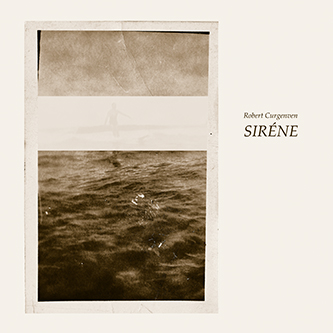
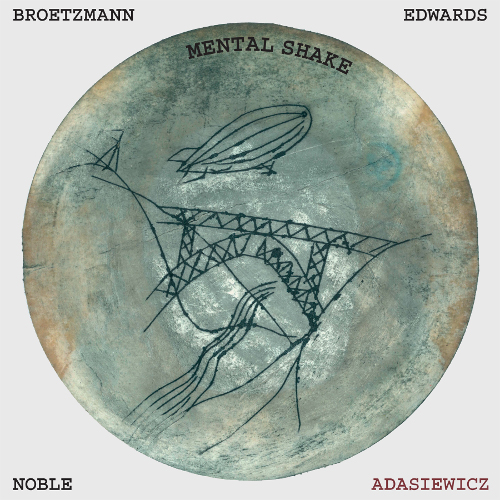
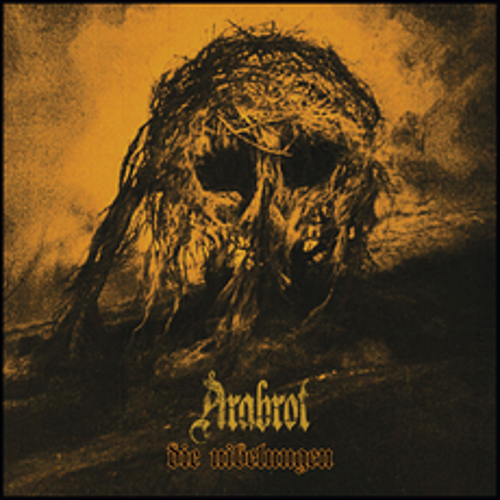
One thought on “Tangerine Dream – Pilots Of Purple Twilight: The Virgin Recordings 1980-1983”
Great writeup. Thanks for taking the time to make it. I will definitely add this to my collection. I’ve been collecting as much of their music on CD as I can lately for fear that this digital music revolution will render CDs obsolete and I will be beholden to these terrible subscription music services for all of my music.